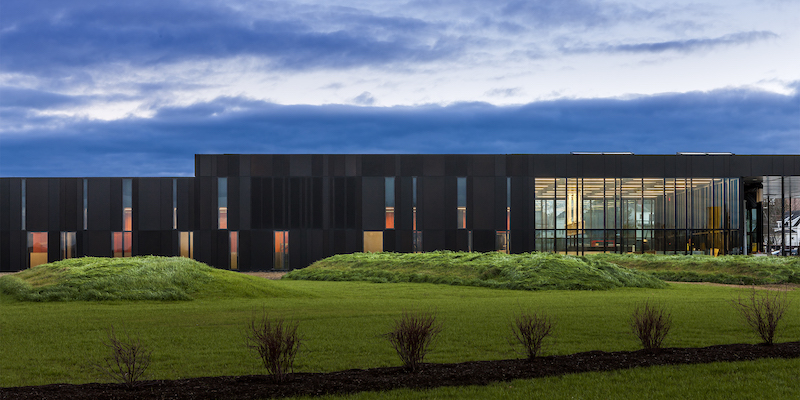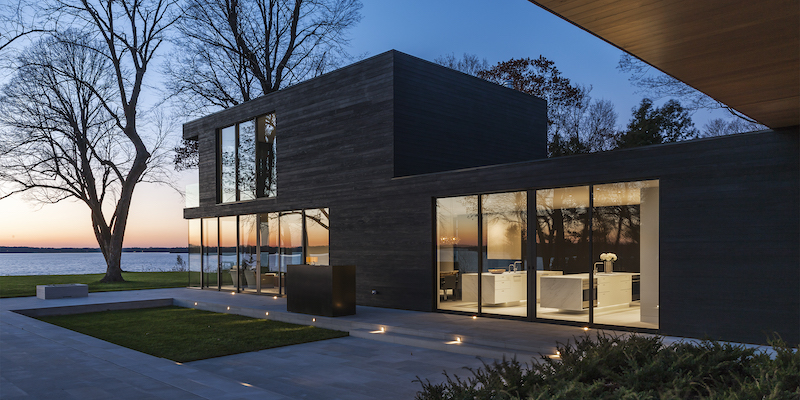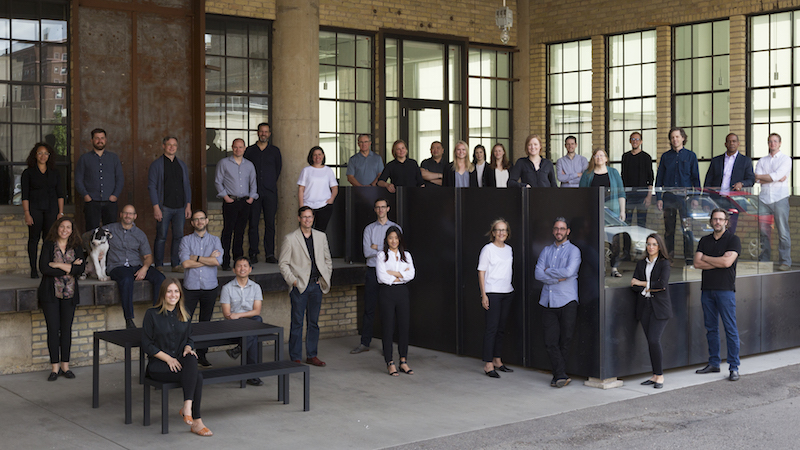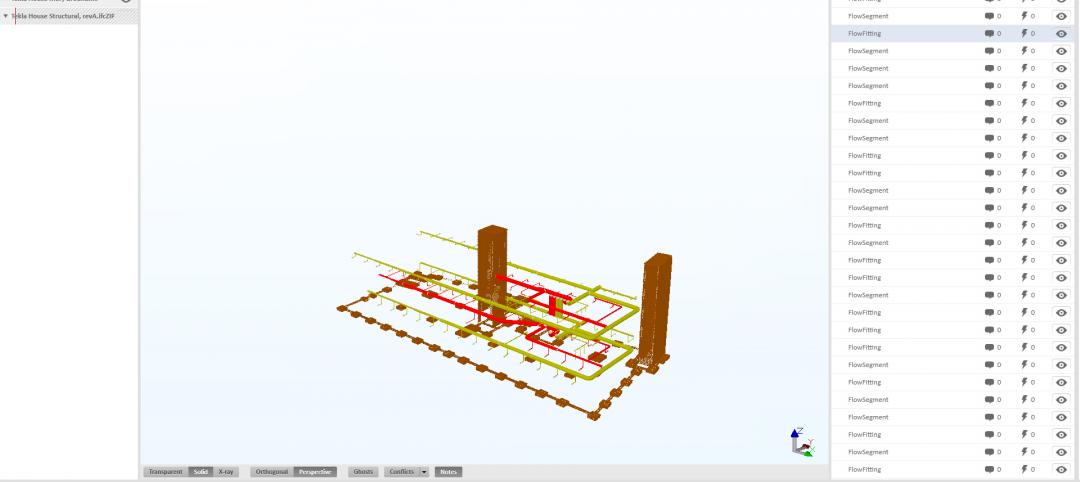The Board of Directors and the Strategic Council of the American Institute of Architects (AIA) voted for Snow Kreilich Architects to receive the 2018 AIA Architecture Firm Award. The AIA Architecture Firm Award, given annually, is the highest honor the AIA bestows on an architecture firm and recognizes a practice that consistently has produced distinguished architecture for at least 10 years. Snow Kreilich Architects will be honored at the AIA Conference on Architecture 2018 in New York City.
Julie Snow, FAIA, founded the firm in Minneapolis in 1995, and later was joined by partner Matt Kreilich, AIA. Snow Kreilich’s practice benefits greatly from the diversity and background of its studio members. Eschewing the demographic norms of many firms, 50 percent of the staff consists of women and minorities, strengthening the culture through holistic collaboration.

All of Snow Kreilich's work springs from the idea that architecture can transform the human experience. Two of the firm's most famous projects — ports of entry for the U.S. Department of Customs and Border Protection in Maine and Minnesota — embody that idea perfectly. Together, the forms of the buildings — the first welcome to America for tens of thousands per year — are about border security as much as they are about a progressive vision for architecture. Their warm materials and glowing interiors project an embracing welcome to all and quietly, but confidently, state that this is a country of bold design solutions.
“This is an architecture of use and convenience, permanence, and beauty, deeply rooted to its place, and constructed of materials choreographed in an emotive way, with poetic qualities that move us deeply,” Marlon Blackwell, FAIA, wrote in a letter supporting Snow Kreilich Architects’ nomination for the Architecture Firm Award. “Their body of work is distinguished by a restrained formal elegance and a refined minimal tectonic sensibility while avoiding the nostalgic and technological excesses of our discipline. Indeed, they see architecture as a material practice and a cultural act born of a sensual pragmatism.”

The Minneapolis firm is also highly regarded for its other building types, from ballparks to single family homes, that each in its own way accomplishes the same mission of elevating the experience of its users. Much of that is done by exercising restraint, eliminating indulgent flourishes in favor of straightforward forms that speak about material richness and tectonic refinement.
Across the Mississippi River in a Minneapolis warehouse district, the firm's 2014 Brunsfield North Loop Apartment uses metal cladding and angular balconies that jut from the facade to set the building apart from its neighbors as the hippest offering in a hot rental market.

Giving back to the communities of Minnesota and the profession are key initiatives beyond design excellence, and many studio members are involved in local architecture schools. In 2017, the firm provided $120,000 in pro bono services to outlets such as the Kibera Girls Soccer Academy in Kenya and the Leatherback Trust in Costa Rica. By shelving the idea of all-night charrettes and promoting a healthy work/life balance, Snow Kreilich has proven that important and award-winning architecture can be conceived during regular business hours.

Other notable projects include:
CHS Field
This project in St. Paul, Minn., was named the best New Ballpark of 2015 by Ballpark Digest. The facility is not only a beautiful venue to watch a baseball game or concert, but also has attracted major investments in housing and restaurants in the neighborhood.
B + W HOUSE
The design replicates the neighborhood’s residential pattern while creating an affordable, sustainable home. A concrete wall encloses the perimeter of the private spaces at grade. The wall is a cast-in-place concrete system with a 4-inch high performance insulation core, providing a cost-effective, energy-efficient, and durable enclosure.
KNOCK INC.
The renovation of a neglected 1960’s food distribution center on the edge of downtown Minneapolis into the new workplace for the creative innovators at KNOCK Inc. Daylight penetrates the space with expanded window openings, floor-to-ceiling glazed office walls, and more than 25 solar light tubes enhancing the work environment and reducing energy consumption. Healthy and local building materials such as reclaimed walnut enhance the workday.
Snow Kreilich Architects is the 55th AIA Architecture Firm Award recipient. Previous recipients of the AIA Firm Award include Leddy Maytum Stacy Architects (2017), LMN Architects (2016), Ehrlich Architects (2015), Eskew + Dumez + Ripple (2014), Tod Williams Billie Tsien Architects (2013), VJAA (2012), Lake| Flato (2004), Gensler (2000), Perkins & Will (1999), Bohlin Cywinski Jackson (1994), and Skidmore, Owings & Merrill (1962).
Related Stories
| Feb 15, 2011
Iconic TWA terminal may reopen as a boutique hotel
The Port Authority of New York and New Jersey hopes to squeeze a hotel with about 150 rooms in the space between the old TWA terminal and the new JetBlue building. The old TWA terminal would serve as an entry to the hotel and hotel lobby, which would also contain restaurants and shops.
| Feb 15, 2011
New Orleans' rebuilt public housing architecture gets mixed reviews
The architecture of New Orleans’ new public housing is awash with optimism about how urban-design will improve residents' lives—but the changes are based on the idealism of an earlier era that’s being erased and revised.
| Feb 15, 2011
LAUSD commissions innovative prefab prototypes for future building
The LA Unified School District, under the leadership of a new facilities director, reversed course regarding prototypes for its new schools and engaged architects to create compelling kit-of-parts schemes that are largely prefabricated.
| Feb 15, 2011
New 2030 Challenge to include carbon footprint of building materials and products
Architecture 2030 has just broadened the scope of its 2030 Challenge, issuing an additional challenge regarding the climate impact of building products. The 2030 Challenge for Products aims to reduce the embodied carbon (meaning the carbon emissions equivalent) of building products 50% by 2030.
| Feb 15, 2011
New Urbanist Andrés Duany: We need a LEED Brown rating
Andrés Duany advocates a "LEED Brown" rating that would give contractors credit for using traditional but low cost measures that are not easy to quantify or certify. He described these steps as "the original green," and "what we did when we didn't have money." Ostensibly, LEED Brown would be in addition to the current Silver, Gold and Platinum ratings.
| Feb 15, 2011
AIA on President Obama's proposed $1 billion investment in energy conservation
The President’s budget increases the value of investment in energy conservation in commercial buildings by roughly $1 billion, reports AIA 2011 President Clark Manus, FAIA. The significant increase from the current tax deduction of $1.80 per sq. ft. now on the books is an increase for which the AIA has been advocating in order to encourage energy conservation.
| Feb 14, 2011
Sustainable Roofing: A Whole-Building Approach
According to sustainability experts, the first step toward designing an energy-efficient roofing system is to see roof materials and systems as an integral component of the enclosure and the building as a whole. Earn 1.0 AIA/CES learning units by studying this article and successfully completing the online exam.
| Feb 11, 2011
Four Products That Stand Up to Hurricanes
What do a panelized wall system, a newly developed roof hatch, spray polyurethane foam, and a custom-made curtain wall have in common? They’ve been extensively researched and tested for their ability to take abuse from the likes of Hurricane Katrina.













